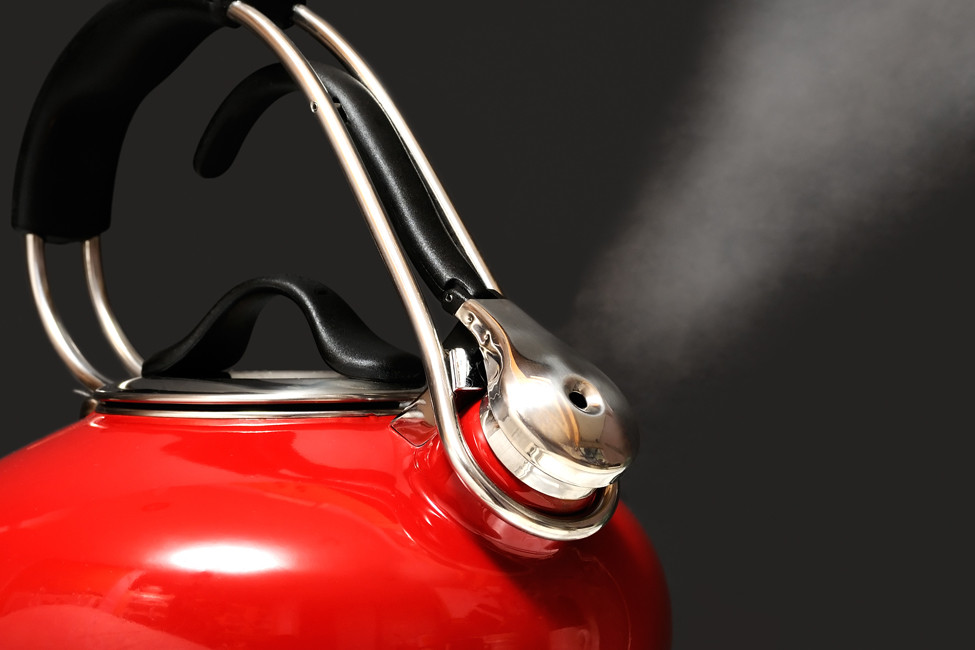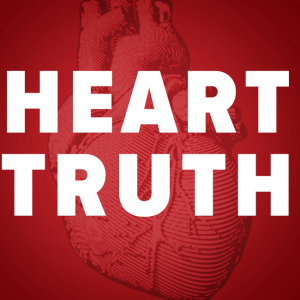Under Pressure: America’s Ongoing Battle with Stress

Of everything for which Americans are known, our capacity for stress is something we as a culture have elevated to an art form, and it just may be the singular ingredient in the Yankee stew that has fed our history.
Americans don’t sweat the small stuff only because to Americans, there’s never any small stuff, just deadlines and deals, capitalism and consumption, success and excess that must constantly be fed as each generation strives to outdo the one before.
This uniquely American trait has undeniably wrought great things, often at an equally undeniably terrible cost. And still, stress is perceived very differently. Depending on who you talk to, it’s either a silent killer or the price of success, something to be managed or something to be conquered. But whether you fear the effects of stress or wear it as a badge of honor, the fact remains stress is a part of daily life in America.
•••
In 2014 alone, Emily Boyd, RN, got married, moved with her husband to Little Rock from her native Colorado and changed nursing environments to the 12-hour shifts of the emergency department at the University of Arkansas for Medical Sciences.
“I had just gotten out of hospital orientation where you sit around all day and hear about insurance and benefits and stuff like that,” she said. “I decided to finish up a few hours on the floor to make my time for the week and all of a sudden they’re like, ‘Hey, go into this room and put an IV in.’ They didn’t even know my name.

“I realized, wow, this is really the front line of getting people into the hospital and being able to diagnose and determine what’s going on in a very quick and timely manner. My first shift on the floor, they had a trauma come in and then this psychiatric patient arrives at the same time. I remember being kind of swept up.”
Where others may have been shaken by the multiple changes and jarring new work environment, Boyd has found the transition exhilarating, bringing her to what she was meant to do.
“I wouldn’t see myself being a different type of nurse at this point in my life. I see myself being an ER nurse,” she said. “I definitely enjoy the critical thinking and the adrenaline rush that comes from emergency nursing.”
•••
No observant individual can honestly say they don’t know the problems stress can bring, but to be fair, stress is also one of the reasons why we’re here. The original fight or flight response that enabled ancestors to escape or conquer danger is the same mechanism that churns the stomach over meetings and public speaking today.
But while stress is natural and unavoidable, problems start when stress isn’t given an outlet — like the steam in a teakettle — building over time.
“Stress has all sorts of causes, from physical health issues to external pressures from work, raising kids, a marriage, financial, etcetera,” said Dr. Pedro L. Delgado, chairman of the UAMS Department of Psychiatry and director of the Psychiatric Research Institute. “People with stress from any source have similar physiological responses such as lack of sleep, sleeping too much, depression, overeating, not eating enough or not eating well.”
Over time, the effects of stress can manifest directly through physical health problems, exacerbate mental health issues and lead to unhealthy behaviors that carry their own potentially devastating consequences.
“Stress can lead to negative coping behaviors like drug and alcohol abuse, violence and suicide,” said Delgado. “These aren’t really strategies, as the individual is reacting this way because he is unaware he is under stress or is resisting or internalizing the stress he is feeling.”
•••
Lt. Pat Thessing has 21 years on the North Little Rock police force, a tenure that didn’t happen without encountering the same challenges every uniform faces.
“The one key in this job you really have to master is to have control of yourself. You can’t let other people get to you and by their actions cause a reaction from you,” he said. “I have been cursed with words I’ve never heard before and that’s OK, but I’m not going to let your lack of control affect how I’m going to react.”
Thessing’s ability to manage job stress didn’t happen overnight or by accident; he learned from veterans on the force who gave it to him straight about how to survive on and off the clock.
“There were training officers I got close to that really shared how if you don’t leave work at work, it can affect your life at home,” he said. “Of course, you can’t help but take work home sometimes. I mean, there’s images and incidents in my head that I wish I could get rid of, but they’re always going to be there. I worked really hard to separate home life and work.”

For Thessing, balance meant working out and spending time with his family. The weight room and cheering from the sidelines of his sons’ games flushed the job out of his system and helped him remain calm on the streets. It worked so well for him that when the unthinkable happened – his wife abruptly calling it quits on their 18-year marriage – it helped him deal with the paralyzing shock of the situation.
“That was probably one of the most traumatic things I’ve ever been through, but I forced myself back into the gym,” he said. “I forced myself to work through it, to put those emotions into working out and sorting everything out. That kind of plays into everything else in life. You’re going to get hit with something at some point, that’s just how it is. The gym has always been my therapy; that and a lot of prayer.”
•••
Stress defies consistent definition and its effects vary among individuals and generations. Some people are more naturally laid back and don’t let things get to them as easily, while others seem to thrive on the adrenaline rush that a stressful situation delivers. Men generally get more attention on the subject because of long-standing societal expectations that they remain strong and stoic in all situations, but research has shown that following a traumatic event, women develop post-traumatic stress disorder symptoms at twice the rate as men.
Other studies show that even very young children are not immune to stress and its health effects, according to Dr. Kevin Rowell, associate professor of psychology and counseling at the University of Central Arkansas in Conway.
“(Stress) can create sleep disturbance and appetite disturbance, and it doesn’t take much sleep disturbance to start creating behavior problems,” he said. “Researchers are finding that in extreme stress, you can find the brain structure is actually altered in young children.”
“Children can develop abnormal production of cortisol and adrenaline that are fine in terms of the traditional fight or flight reaction but long-term, create high blood pressure, heart disease, chronic issues of asthma and other diseases.”
In fact, about the only thing that’s consistent on the topic of stress is the effectiveness of exercise in mitigating its effects.
“Exercise is almost always at the top of studies in terms of managing stress,” Rowell said. “We’re not talking about running marathons; we’re talking about having aerobic exercise for 30 minutes a day for at least four or five days a week.”

Except in Boyd’s case, we are talking about running marathons; in fact she just finished her first one in Niagara Falls, N.Y., this fall after years of running shorter distances from 5Ks to half marathons dating back to college.
“There are definitely days where I actually run at work; it is a physically demanding job and on top of that, it’s also mentally and emotionally demanding,” she said. “While running is definitely still physical, it also gives you that opportunity to clear out any of that yucky mental and emotional waste that gets built up with work.”
“I think if I didn’t have running as my outlet and as my stress reliever, or if I didn’t have a way to clear my mind, I don’t know if I would be able to thrive as a nurse and be able to give 100 percent at the bedside and give good healthcare like every patient deserves.”
Thessing doesn’t share Boyd’s passion, exactly (“I hate running,” he said with a chuckle), but he wholeheartedly shares her view of exercise as stress therapy. He hits the weights four to five days a week.
“The more I did it, the more I realized that it’s not just getting in there and lifting weights, it’s getting in there and you push yourself and you can leave everything there in the weight room,” he said. “To me, the weights are kind of like life. When you’re getting under the bar to do squats or the bench press or whatever, it’s like you have something that’s opposing you right there and you have to handle it; you have to overcome.”
“My dad had this quote. He always told me there’s always going to be a train on the track. You always know you’re going to have to deal with something. Even the time in the weight room on days it’s pushing yourself just to walk through that door, you know, pushing yourself to do stuff you don’t want to do but you know the benefit is going to help you.”







